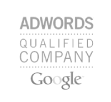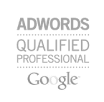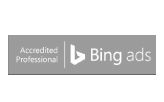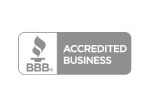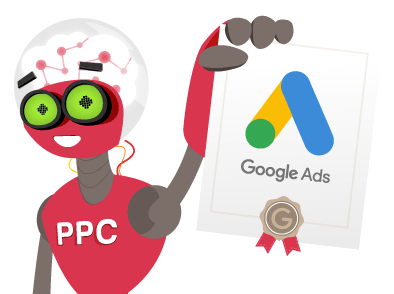It’s not surprising that AdWords Express is a popular tool for small business owners. They’re so busy in the day to day operations of the business that they may not have time to learn about internet marketing or building a campaign. However, they understand the importance of a solid web presence – and how important it is to show up at the top of Google search results.
AdWords Express does a lot of the hard work for you. It chooses keywords and runs campaigns. All you have to do is click a few times and you’re ready to go. It’s simple, easy to set up, and completely automated. Essentially, you can set it, forget it, and get back to running your business.
But, by handing over control of your advertising to Google, you may not get the results you’re looking for. AdWords Express is designed to be simple, but was it built for success?
What is AdWords Express?
Put simply, AdWords Express is an easier-to-use version of AdWords. However, there are a lot of differences. Express released as a way to attract more people to use AdWords and promote their businesses. This is because AdWords can be overwhelming, especially for a small business owner who’s busy doing so many other things.
Using AdWords Express makes it easy to set up and manage pay-per-click (PPC) advertising campaigns. Basically, you choose the category of your business, put together a quick ad, and set your budget. Google then takes care of the rest.
The problem is that this method of PPC advertising isn’t overwhelmingly successful. While it may increase clicks, it’s not likely to lead to conversions. Let’s take a look at a few reasons why.
How Do Businesses Waste Money with AdWords Express?
Paying for advertising that isn’t bringing in more customers or clients is not only a waste of money, but it’s also a wasted opportunity. That money could instead be spent on a better campaign that attracts more business and brings in new clients.
So, why is AdWords Express a waste of money? What is it about this marketing tool that can actually put your business at a disadvantage? Here are six areas where it just doesn’t stack up.
1. It uses broad keywords that appear in irrelevant searches.
When you set up an ad in AdWords Express, it shows up in search results that are similar to the keywords you chose, including any related searches or synonyms. Basically, Google has some leeway to show your ads when they feel they might be appropriate, which could mean it pops up in searches for related keywords that, in reality, are irrelevant to your business.
For example, say a bakery specializing in homemade bread bids on the keyword for bakers. Google may show this business in a search for a local pastry shop. The result is related to the keyword – surely, a pastry shop qualifies as a local baker. But people who are looking for a wedding or birthday cake are probably not interested in a shop specializing only in homemade bread.
Another example is when a search term consists of two words that may relate to other subjects. For example, a search for “marriage counseling” may return results for marriage counselors in your area, but you’ll likely also see results about physical therapy and psychiatry as well as listicles claiming that there are ten things your marriage counselor is afraid to tell you. As you can see, most of these results aren’t relevant. That’s why broad keywords aren’t necessarily effective.
2. You can’t pick the exact keywords you want to use.
When creating an ad campaign on AdWords Express, you choose a general marketing category (Bakery, Plumber, Caterer, etc.) or you can create your own. Then, you select from various categories for your ad to appear in, such as people looking for wedding or catering or plumbing.
That’s it. From there, Google generates a list of broad keywords for your account. You cannot add manual keywords, either, you can only turn words from the generated list off and on. In the end, though, this isn’t giving you a lot of control over your campaign at all since most of the keywords are broad and can lead to your ad appearing in irrelevant results.
3. You have no say in how the budget is spent.
While you do set an overall budget for your ad campaign, you don’t have any control over the keywords it’s spent on. Google, on the other hand, has complete control over the way your budget is spent. This can lead to higher cost-per-clicks since your ad is being shown to people who may not be interested in your business.
This may explain low conversion rates. For example, people looking for a local baker to make a wedding cake may be curious about a bread baker but, ultimately, what they really need is a cake. Someone might be looking for a marriage counselor and be curious about an ad for a physical therapist – but, again, that’s not what they’re looking for.
4. You can’t choose negative keywords.
Negative keywords let you choose search results that you don’t want your ad to appear in. For example, if you sell high-end furniture, you can select negative keywords like “cheap” or “budget,” so people looking to buy inexpensive furniture don’t get your store in their search results. If you’re a marriage counselor, you can choose negative keywords like “physical,” so your business doesn’t show up in results of people looking for a physical therapist.
In AdWords Express, you can turn off keywords but, again, there’s no guarantee that the broad keywords that are being used won’t land you in those search results anyway.
5. You can’t modify your ad to make it stand out.
AdWords allows you to add extensions that can make your ad stand out, including callouts which highlight your services or certifications or site links where customers can follow a link directly to a page of your website that’s relevant to what they’re looking for. Not only does this give customers more access to your website, but it also adds a little more credibility to your business right from the start.
AdWords Express ads are generally pretty basic and contain your business name, link to the website, and a short blurb to attract attention. When placed next to an ad with extensions, though, a basic add doesn’t attract the same level of attention or interest.
6. You don’t have access to all the information.
This is perhaps the most aggravating reason that AdWords Express is a waste of money. You do not have access to any information about conversion tracking, so you have no idea what’s working and what isn’t. Because the whole system is automated, you have to trust that Google is working toward your goal.
Is AdWords Express Ever Worth It?
The only time that AdWords express is an okay choice is in a hyperlocal market. For example, if you’re a small business with one location that is looking to attract customers from a very defined region, AdWords Express might deliver results.
In this case, ads show up in search results according to the GPS or IP address of the city where the search is coming from. This is actually a great option for a business that doesn’t have a website because it can drive traffic to a business listing on review sites or direct potential customers to the business address and phone number. For example, someone searching for “pizza near me” might see the listing of a pizza shop they never heard of on Google Maps and decide to give it a try.
This is not an effective strategy for businesses hoping to make a broader impact. But it can help a local shop draw some attention.
Use Your Advertising Budget to Optimize Results
Advertising online is an essential marketing strategy for businesses of all sizes, though small business owners are often at a disadvantage. They may not have the time to research and run a truly effective internet marketing campaign, and they likely don’t have the budget to pay for a big advertising firm to do it for them.
AdWords Express may seem like a great solution. It gives you a web presence and ad campaign with keywords managed by Google. But the truth is that the limited options and how they prevent you from tailoring your ad campaign will likely not deliver the results you’re hoping for.
Related Posts You Might Want To Read





